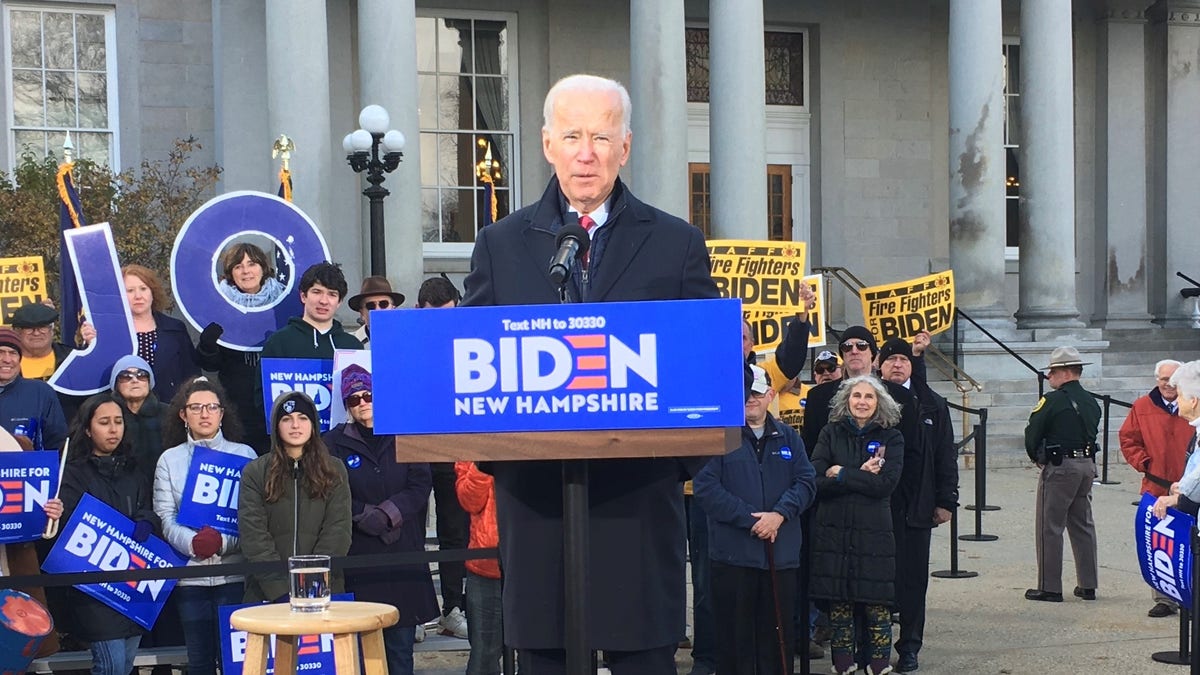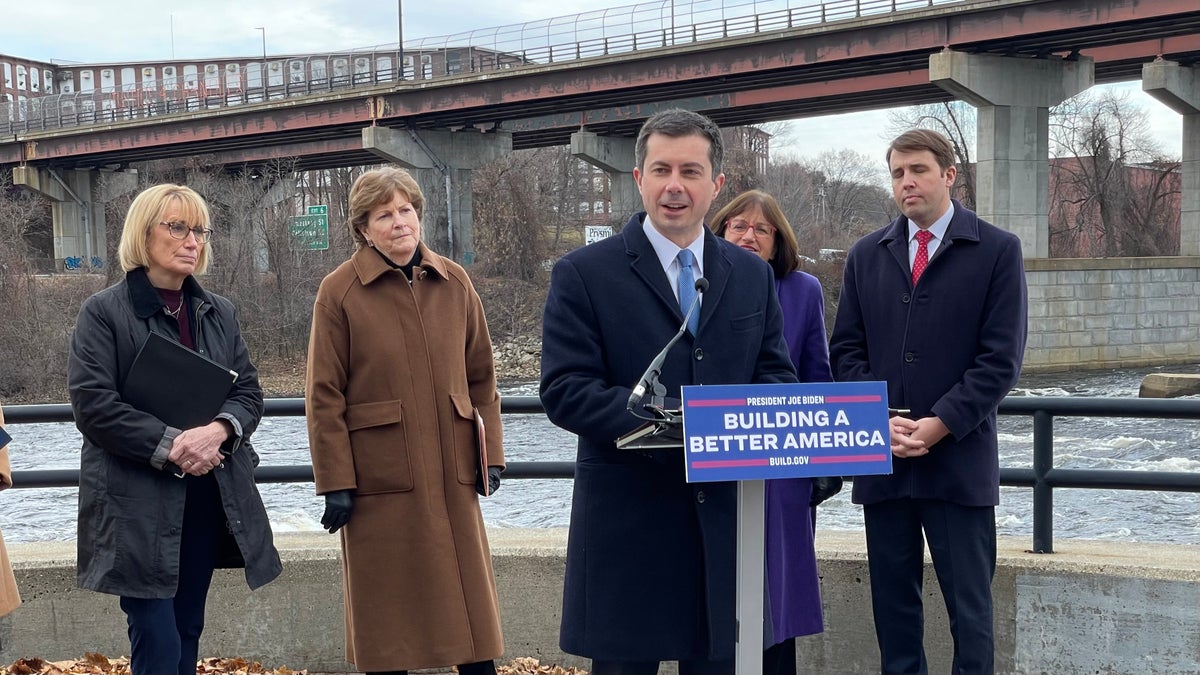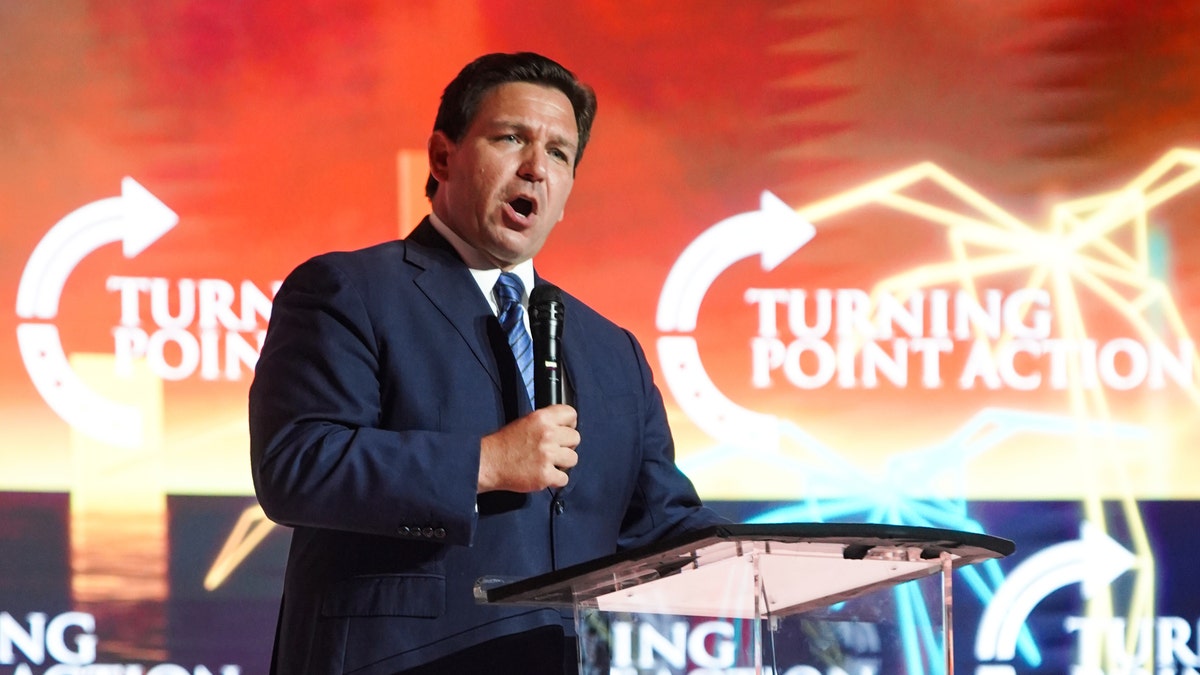Fox News Flash top headlines for July 26
Fox News Flash top headlines are here. Check out what's clicking on Foxnews.com.
DURHAM, N.H. – A majority of Democrats in the state that for a century’s held the first primary in the race for the White House don’t want President Biden to run for re-election in 2024, according to a new poll.
A poll from the University of New Hampshire Survey Center released on Tuesday also indicates the president’s favorable rating is at an all-time low and that Biden’s tied with Transportation Secretary Pete Buttigieg when respondents were asked who they would support in the 2024 Democratic presidential primary.
Only 31% of likely Democratic presidential primary voters questioned said they wanted the president to seek a second term in the White House, with 59% saying they don’t want Biden to run again. Support for a Biden re-election bid among New Hampshire Democrats has nosedived, from 74% last summer to 54% in the last UNH poll, which was conducted in June.
The president’s favorable rating in the latest survey among New Hampshire Democrats sank to 42%. And three-quarters of self-described Granite State Democrats said they were very or somewhat concerned about Biden’s age.

Then-former Vice President Joe Biden campaigns in front of the New Hampshire State House on Nov. 8, 2019, in Concord, N.H. (Fox News)
Even though Biden has repeatedly said he’ll seek a second term if he remains healthy, there’s been plenty of chatter and speculation for more than a year regarding whether the 79-year-old president will run for re-election. Biden made history in 2020 when he became the oldest person ever elected president. If he campaigns for re-election in 2024 and wins, Biden would be 82 at his second inauguration and 86 at the end of his second term.
The release of the UNH survey follows a slew of recent national polls which indicated that a majority of Americans don’t want Biden to run again.
POTENTIAL 2024 DEMOCRATS MAKE EARLY MOVES
The UNH Survey Center asked Democratic respondents to choose their preference for their party’s presidential nomination out of a list of potential White House hopefuls.
Buttigieg, who came in second in the 2020 New Hampshire primary, was the choice of 17% of respondents, with Biden at 16%. The president placed fourth in the 2020 primary.

Transportation Secretary Pete Buttigieg, joined by New Hampshire's all Democratic congressional delegation (L to R: Sens. Maggie Hassan and Jeanne Shaheen, and Reps. Annie Kuster and Chris Pappas), speaks at a news conference in Manchester, N.H. on Dec. 13, 2021 (Fox News )
Another 2020 presidential candidate, Sen. Elizabeth Warren of neighboring Massachusetts, was the choice of 10% of likely Democratic primary voters, and was tied with California Gov. Gavin Newsom. Sen. Amy Klobuchar of Minnesota, who also ran for the White House in 2020 and came in third in New Hampshire, was at 9% in the new poll, with Sen. Bernie Sanders at 8%. Sanders, the progressive champion and independent senator from neighboring Vermont, edged Buttigieg to win the 2020 primary in New Hampshire and was runner-up to Biden in the overall race for the Democratic nomination.
Vice President Kamala Harris, who would be considered the initial front-runner for the nomination if Biden decided not to seek a second term, polled at just 6%. Harris also ran for the White House in 2020 but suspended her campaign before the start of the primary and caucus calendar.
BIDEN'S FIRST STOP IN IOWA SINCE 2020 ELECTION SPARKS 2024 SPECULATION
Progressive firebrand Rep. Alexandria Ocasio-Cortez of New York grabbed 5% support, with 2016 Democratic presidential nominee and former Secretary of State, senator from New York and first lady Hillary Clinton at 3%, along with 2018 and 2022 Georgia gubernatorial nominee Stacey Abrams. Everyone else on the list of potential contenders registered at 2% support or less.
The UNH survey from June indicated that 68% of New Hampshire voters didn’t want former President Donald Trump to make another White House run in 2024. But 62% of self-described Republicans did want Trump to seek another term as president.

Florida Gov. Ron DeSantis, a Republican speaks to the Turning Point USA Student Action Summit on July 22, 2022. (Sarah Freeman/Fox News)
That same survey made national headlines by indicating Florida Gov. Ron DeSantis edged Trump 39%-37% among likely GOP presidential primary voters. And the survey indicated Biden topping Trump but DeSantis edging the president in hypothetical 2024 general election matchups.
CLICK HERE TO GET THE FOX NEWS APP
The latest UNH Survey Center poll was conducted July 21-25, with 1,043 Granite Staters, including 430 likely New Hampshire Democratic primary voters, questioned. The survey’s overall sampling error is plus or minus three percentage points, with a sampling error of plus or minus 4.7 percentage points for questions posed to likely Democratic primary voters.















































